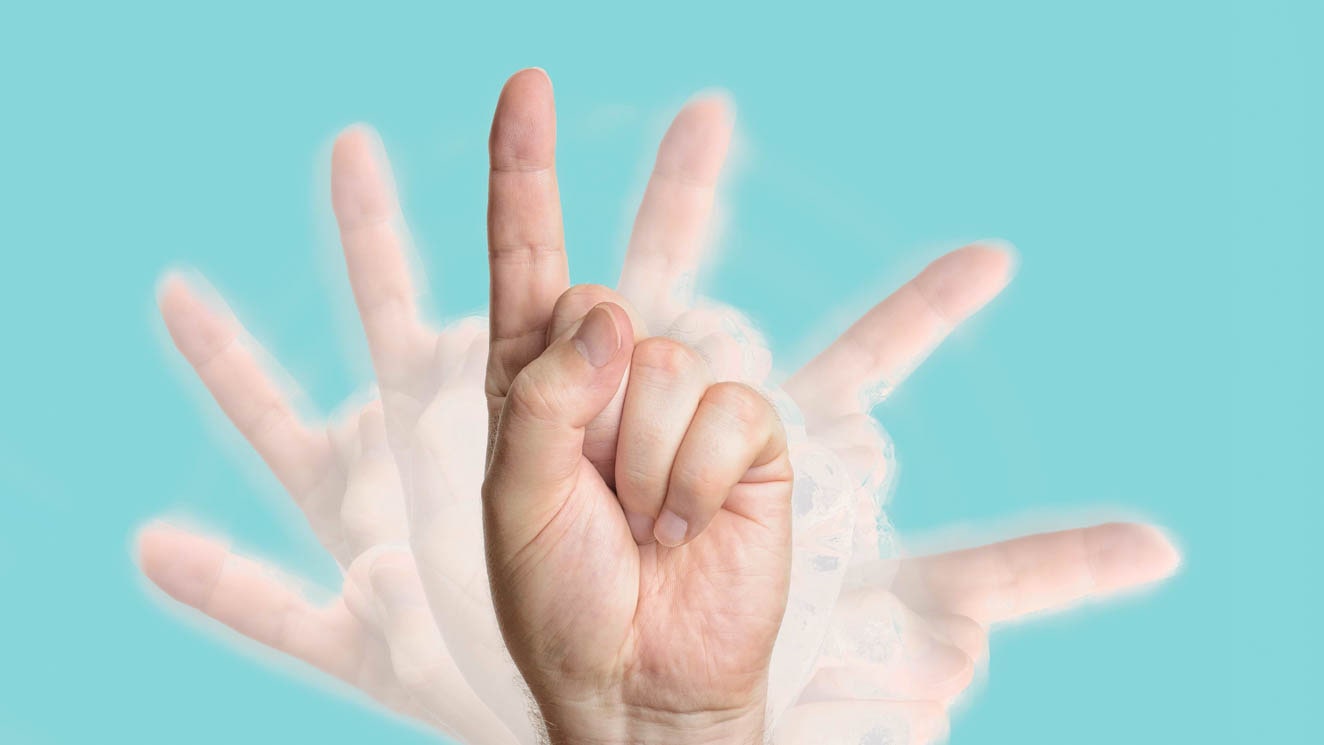

I was a weird kid. I know that’s not a very hefty claim; all kids are like little aliens with an uncanny penchant for clogging toilets. But even for a kid, I spent a lot of time frustrating and confusing the people around me.
To the adults in my life, I was irresponsible because I was completely unable to keep track of things. I was “dramatic,” dissolving to tears at the mere suggestion of disapproval. I was infuriating, because I’d do my homework and then forget to turn it in. To my peers, I was bizarre because I’d sit and daydream and write stories all day. I was clingy, because I wanted to hang out all the time. I was gross because I was always chewing on pencils, erasers, pens, and paper.
I was also intelligent enough to know that I didn’t seem to fit in with many people, which made for a rather rough ride, especially while I was navigating the gauntlet of hormones and boy band obsessions that made up my adolescence.
Still, somehow, I made it to adulthood without moving to the woods and denouncing human contact. I even got married twice, had two children, and settled into suburban life. I had, I figured, outgrown my weirdness. Or at least, I felt as if I may have learned to control it.

Then my five-year-old began to struggle in school.
To be clear, I was never one of those parents who is blinded by how “amazing” their children are. I love my children and think they’re amazing, but I also get that all children are still learning that they aren’t life’s main character. I never believed my son would be perfect, but I also didn’t expect things to go how they actually went.
My son was “that kid:” the one who was always in the principal’s office, who refused to sit down and do his work, who’d disrupt the whole class to cry over a math worksheet that he could very easily do in two minutes. I was called by the school at least twice a week to be told that he’d been playing when he wasn’t supposed to, or wandering off during class time. It was all I could do to not change my phone number for those first few months of kindergarten.
Then one day, during yet another after-school talk, something clicked for me as my son’s eyes continually darted away from us while we spoke to him. It was like he actually couldn’t pay attention to us. Suddenly, a thought hit me. “This kid knows he gets in trouble for this stuff, and he can’t stand the consequences. Since when does a five-year-old choose to sit and listen to adults prattle on after school every day?”
“I don’t think he can help this.” I said to my husband later.
To my surprise, my husband didn’t disagree. “It does seem like he’s doing things impulsively, doesn’t it?”
So I went online to research ADHD, and I came out of it shaken, to say the least. Article after article perfectly described my son, then listed adult ADHD symptoms that described me way too well. Like any responsible adult, I ignored this information completely and worked instead to get my son’s diagnosis, which, after two doctor’s visits wherein he zoomed around the room as if he’d swallowed a can of jet fuel, came easily.

Those adult ADHD symptoms never left my mind, though. I was aware of the underdiagnosis of ADHD in girls and women. What if I’d just never understood my brain fully?
I’d ask people who knew me well, and they said I was seeing patterns that weren’t there. Even as I found myself physically unable to get up to do things I knew I should do. Even as I flitted from interest to interest without more than a month’s focus. Even as I spent money I didn’t have when I was feeling especially sad. But I believed these people, because I’d already been diagnosed with Generalized Anxiety Disorder, and I didn’t feel like having yet another label put on me. In the meantime, I researched ways to interact with my son, all the while continuing to recognize myself in him.
Everything changed, though, when I learned that ADHD could have been responsible for my ongoing fatigue. It’s not a widely-known symptom, but it turns out that, for women especially, a brain that is always running between thoughts, needs, wants, and… well… life… can result in a tired body.
That was the push I needed. I was diagnosed within a week.
It was after I started medication – after I sobbed on my second day because I was able to actually do things after thinking about them – that I started to realize just how little I’d understood myself this whole time.
I’m not lazy; lazy people don’t want to do nine thousand things at once.
I’m not irresponsible; if it’s directly in front of me somehow, I remember to do it.
I’m not messy. Okay, maybe I’m a little messy. But I’m not a slob!
When your entire self-image is turned on its head like that, your mind can’t help but wonder about others who might be like you. I found myself thinking about the other women and girls who didn’t know this about themselves either. I imagined their teachers’ gazes skipping over them because they were daydreaming, because they were distracted. I could only guess how many times those same girls had wondered why they couldn’t pay attention or keep friends – why they were weird.
I’d always wondered that, and suddenly I knew.
Trying to get to know yourself later in life is a trip. You spend a lot of time thinking about moments in your life that you haven’t thought about in ages, realizing that the thing you said had a reason, and that that reason had a name. Mostly, you start seeing things as a personality trait instead of a flaw.
I don’t think we tell each other enough that self-discovery has no expiration date. Neither does self-acceptance. Both of these things present themselves in a spectrum, at a dripping pace, and if we can appreciate those moments of understanding when they come, we’re in for some pretty amazing growth.
In my case, as I learned about my son, I also came to find an uncharted and misunderstood extension of my own mind. I’ve come to accept this part of myself, without judgment, and I’ve become a more sympathetic, logical, and resourceful mother. It’s weird.
And I wouldn’t have it any other way.







